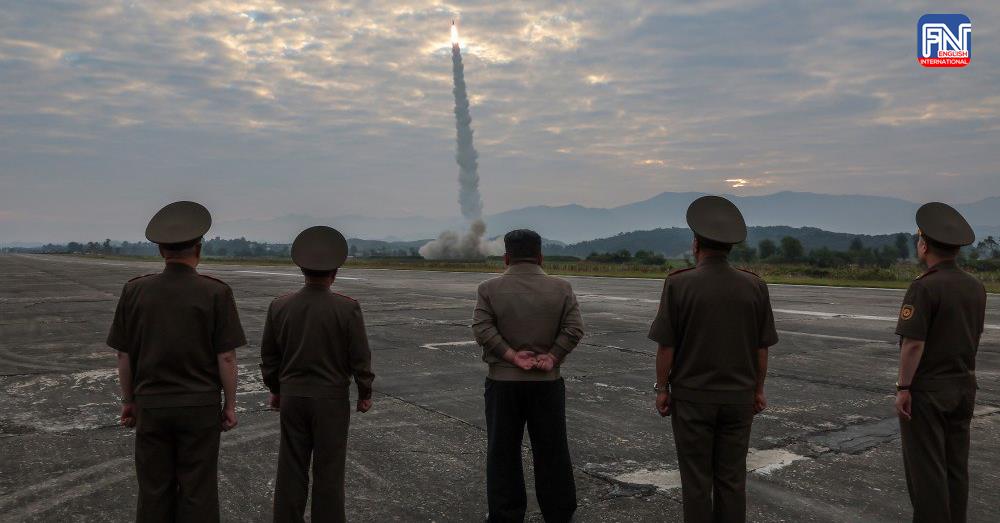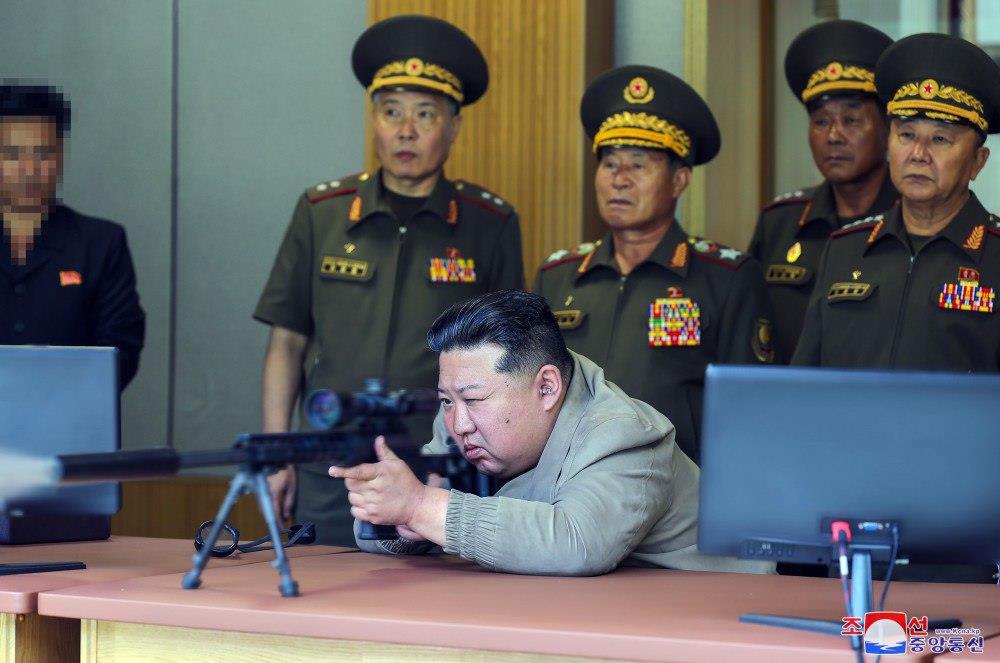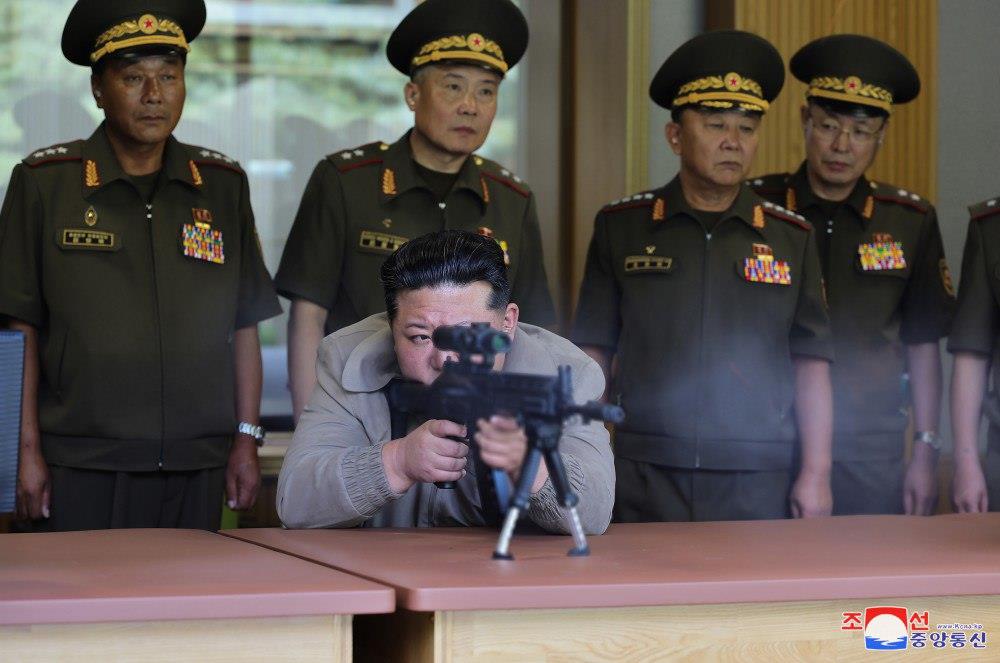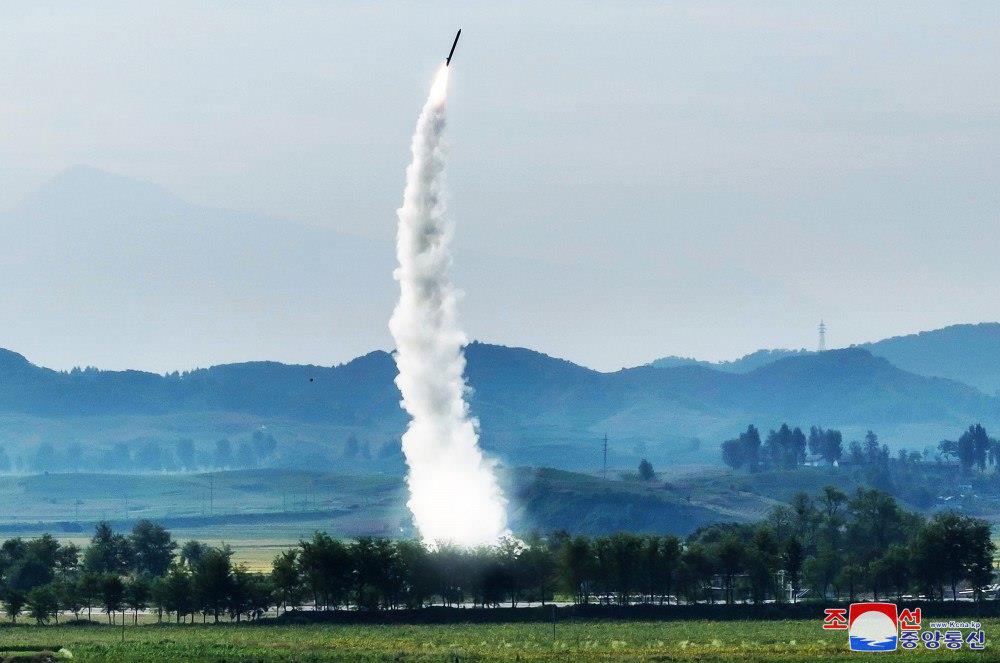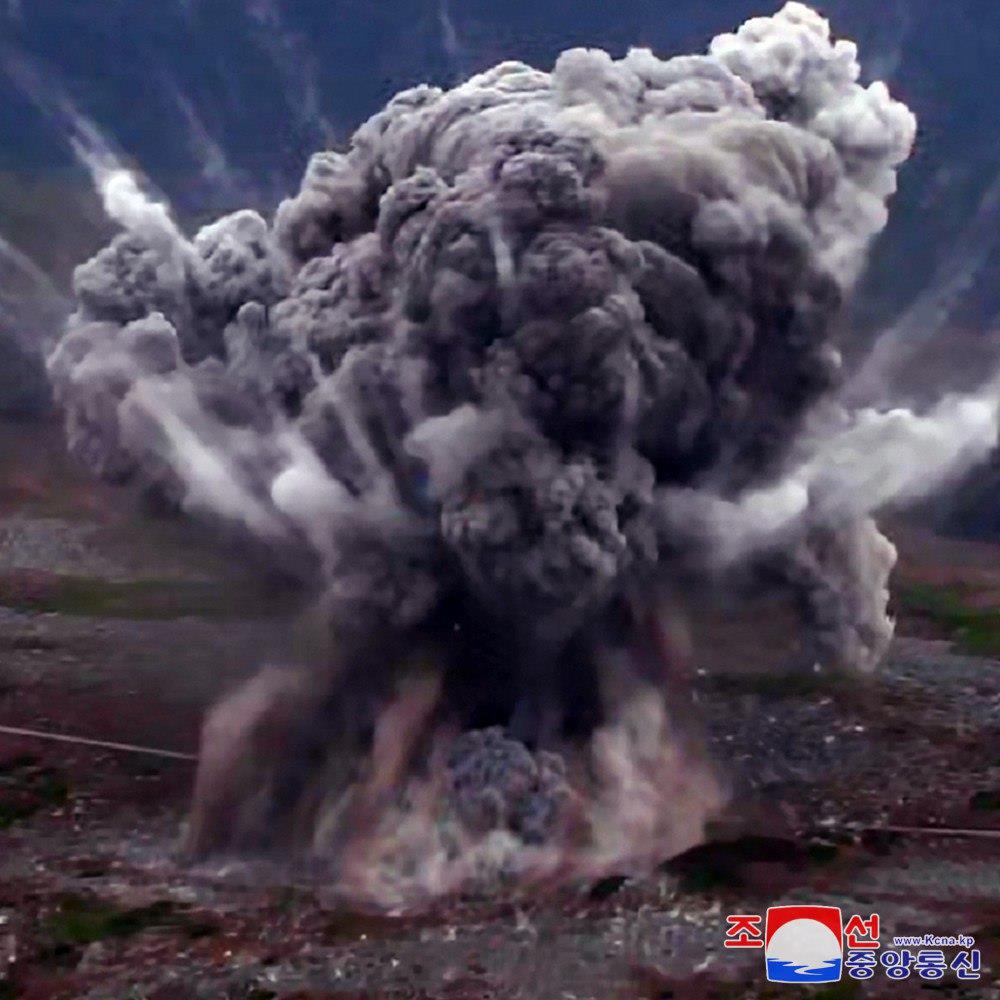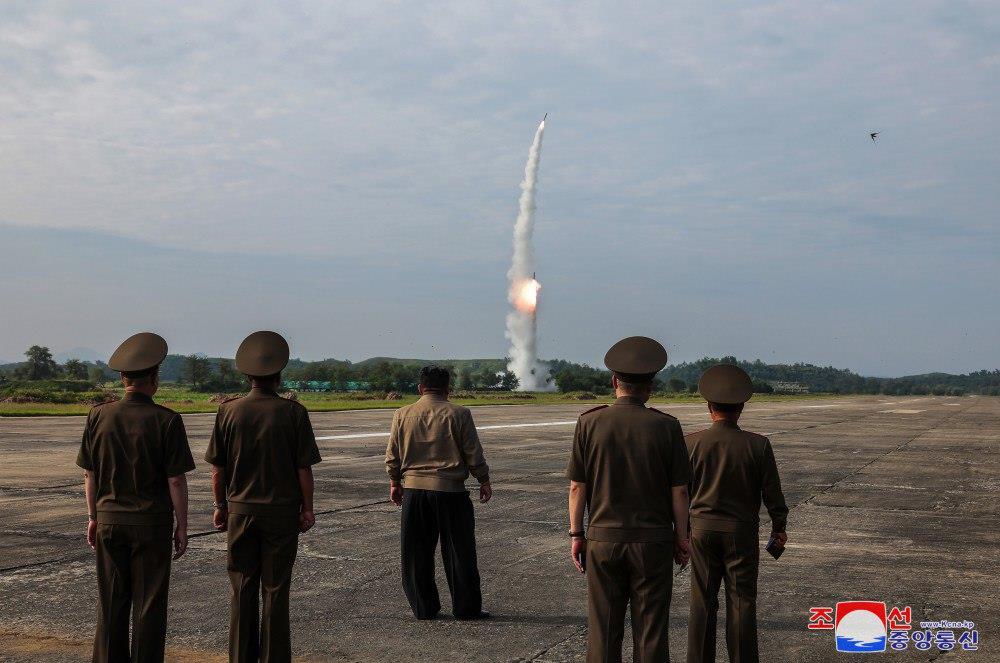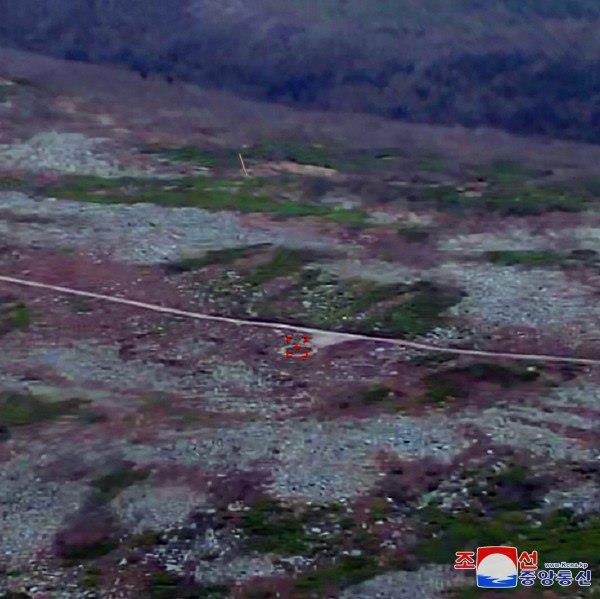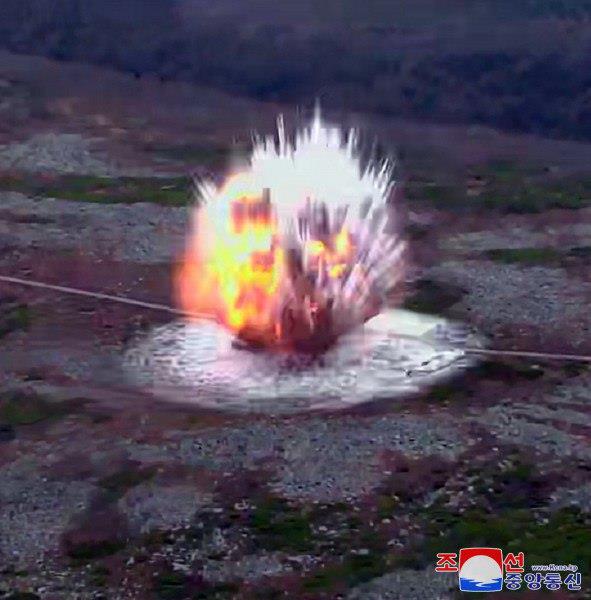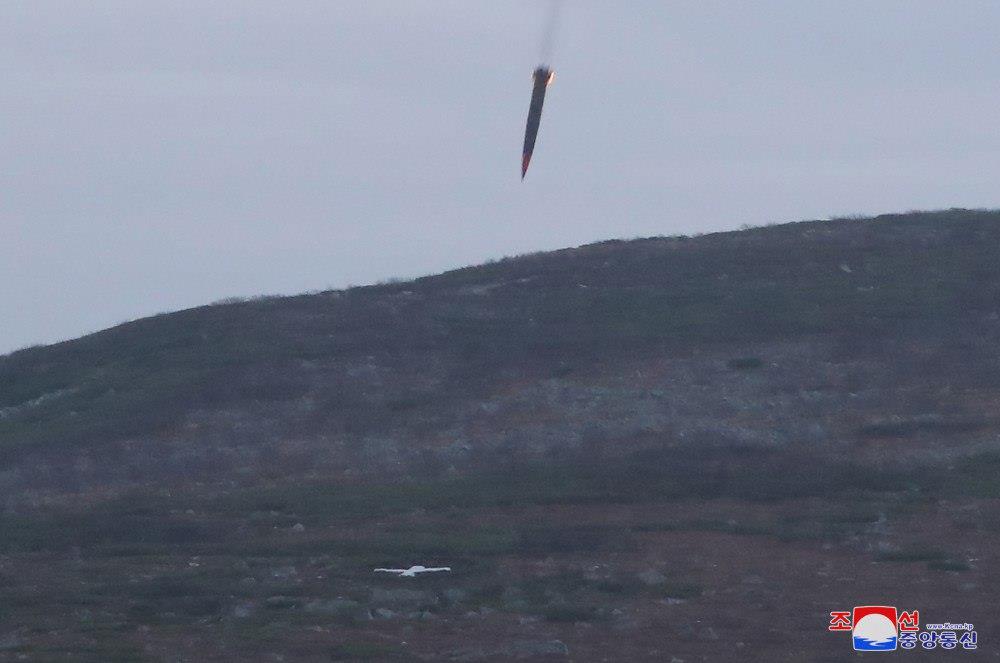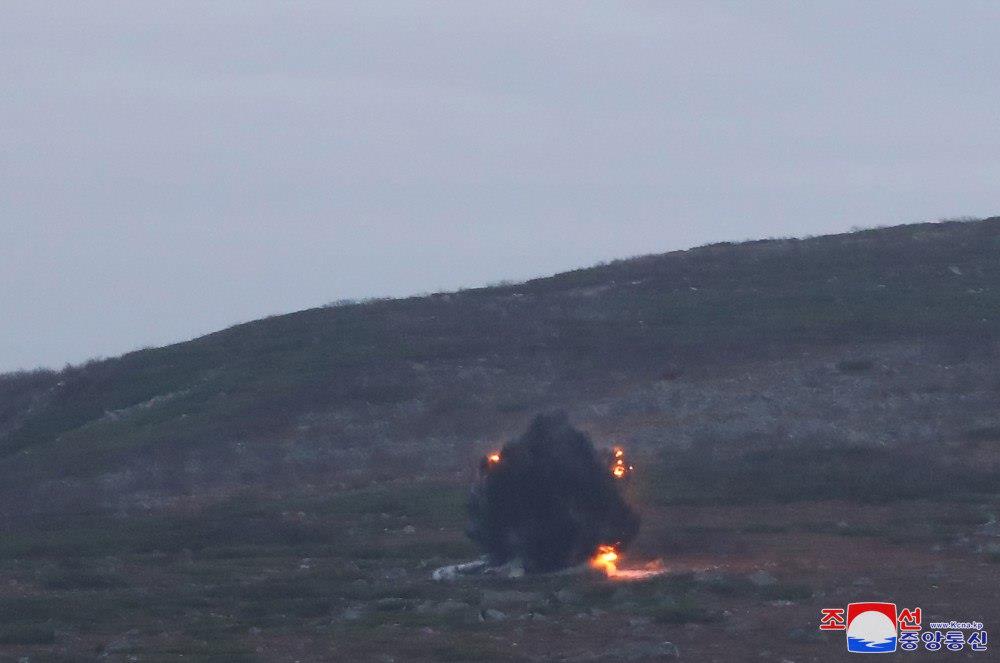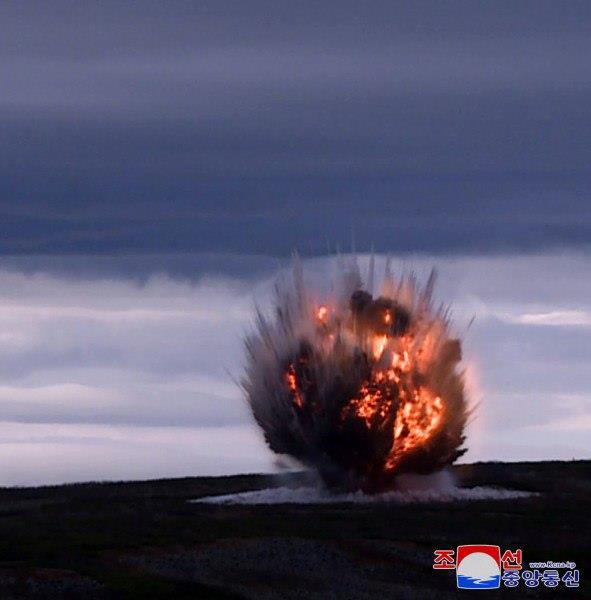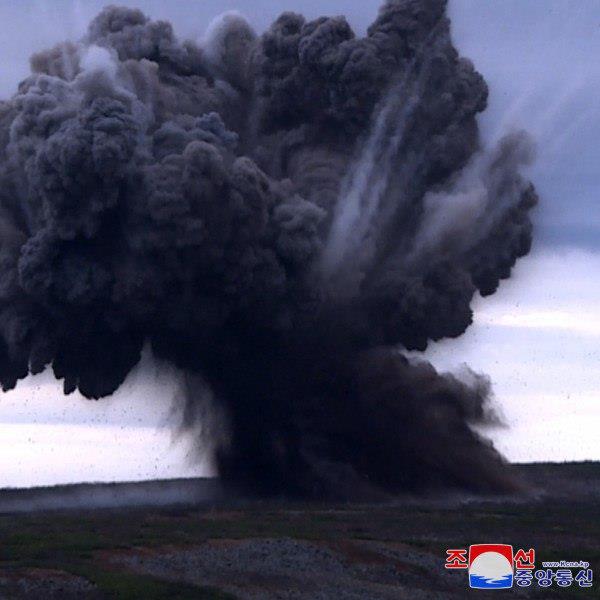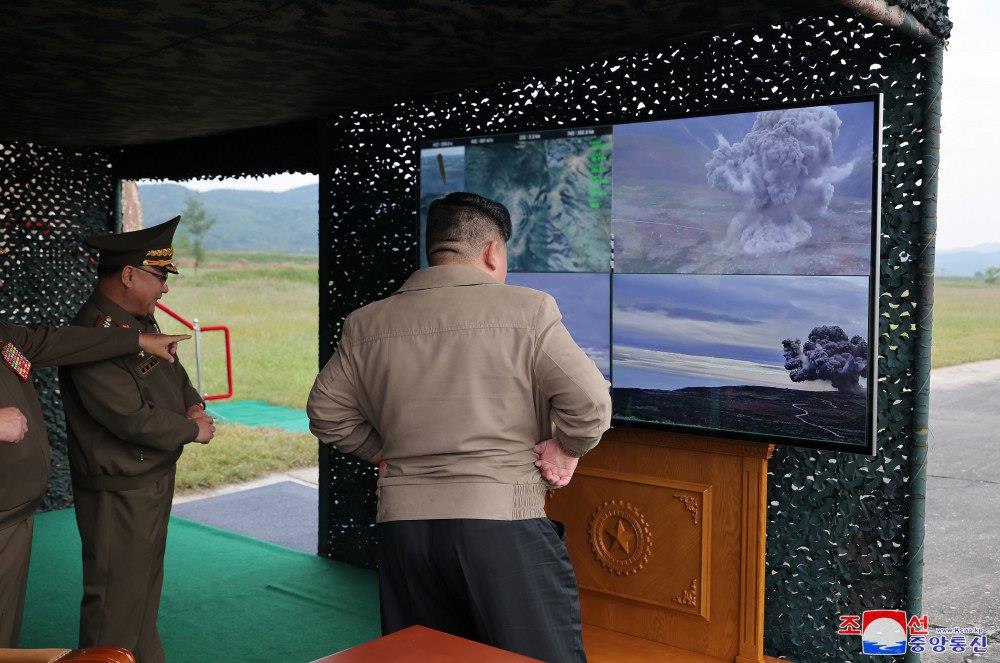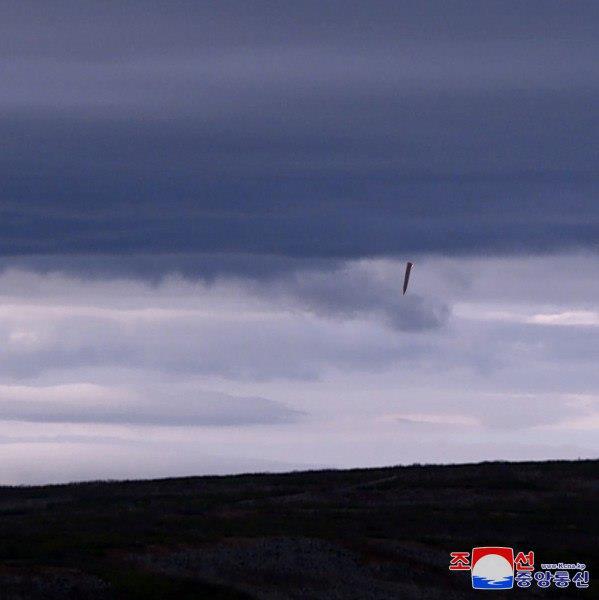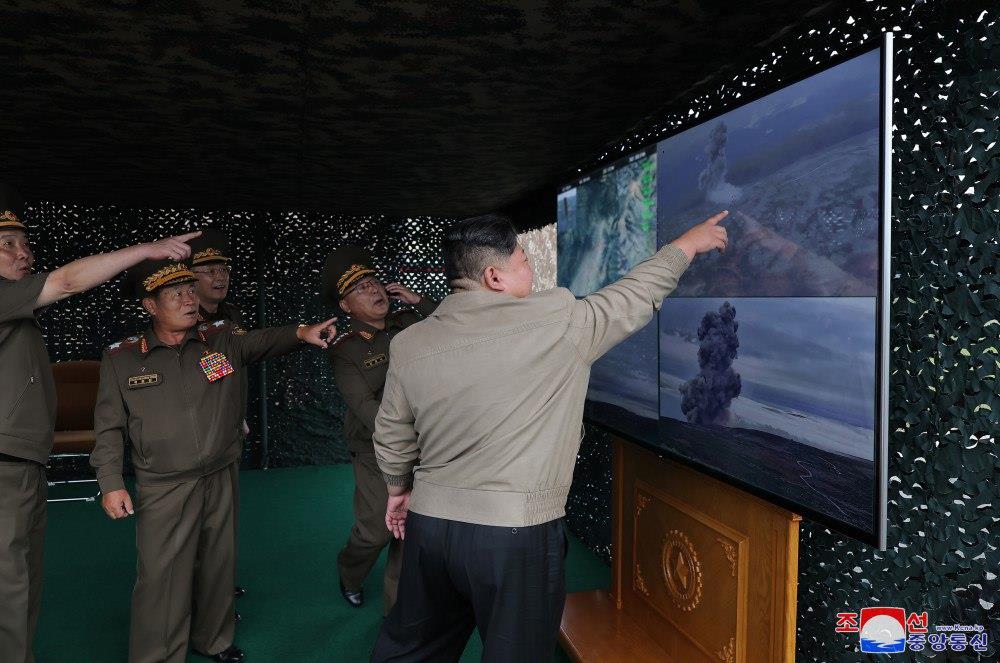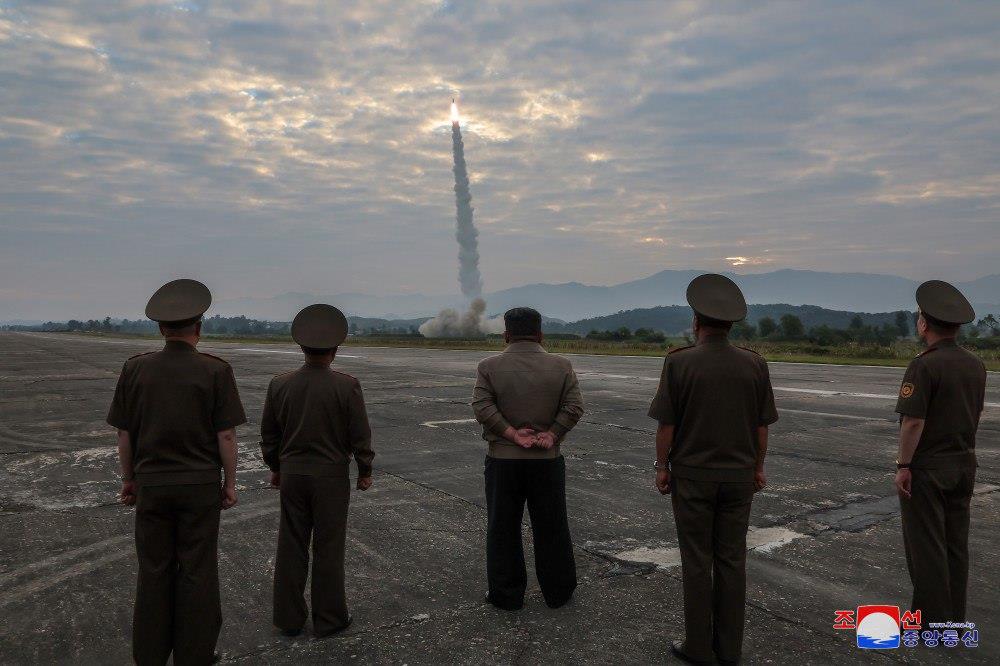Pyongyang, Sep. 19 (KCNA) – The Missile Administration of the DPRK successfully conducted test-fires of the new-type tactical ballistic missile Hwasongpho-11-Da-4.5 and an improved strategic cruise missile on Wednesday.
The new-type tactical ballistic missile was tipped with a 4.5 tonnage super-large conventional warhead according to design.
Its test-fire was aimed at verifying the accuracy of hit at medium range of 320 km and explosive power of the super-large warhead with a missile loaded with such a warhead.
The administration also conducted a test-fire of strategic cruise missile whose performance has been highly upgraded for its combat use.
Kim Jong Un, general secretary of the Workers' Party of Korea and president of the State Affairs of the Democratic People's Republic of Korea, guided the test-fires.
He expressed great satisfaction over the test results.
He said that such tests and steady improvement of performance of weapons and equipment through them are directly related to the grave threat of outside forces to the state security environment of the DPRK.
The military and political situation in the region threatening the present state security environment indicates that the work for bolstering up the military capability for self-defence should be the most important affair of the country, he said.
Our military superiority proved once again today is enough to judge the speed of development of the DPRK's armed forces, he said, stressing the need to continue to bolster up the nuclear force and have the strongest military technical capability and overwhelming offensive capability in the field of conventional weapons, too.
Only when we have strong power, can we contain and frustrate the enemies' strategic misjudgment and will to use armed forces, he said, adding this is a true deterrent for defending peace and stability.
He also oversaw several kinds of small arms including a 7.62 mm sniper rifle and a 5.56 mm automatic rifle developed by the Academy of Defence Sciences and set forth the orientation of production and the important tasks for further increasing technical foundation of the factory.
Accompanying him were Pak Jong Chon, vice-chairman of the Central Military Commission of the WPK and secretary of the C.C., WPK, Jo Chun Ryong, secretary of the C.C., WPK, Kim Jong Sik, first vice department director of the C.C., WPK, Jang Chang Ha, director general of the Missile Administration of the DPRK, Ri Chang Ho, deputy chief of the General Staff and director of the General Reconnaissance Bureau of the Korean People's Army, Kim Yong Bok, deputy chief of the KPA General Staff, Kim Kang Il, vice-minister of National Defence of the DPRK, and Kim Yong Hwan, president of the Academy of Defence Sciences.
